Can You Compost Eggshells? What You Need to Know
-
Pete Ortiz
- Last updated:
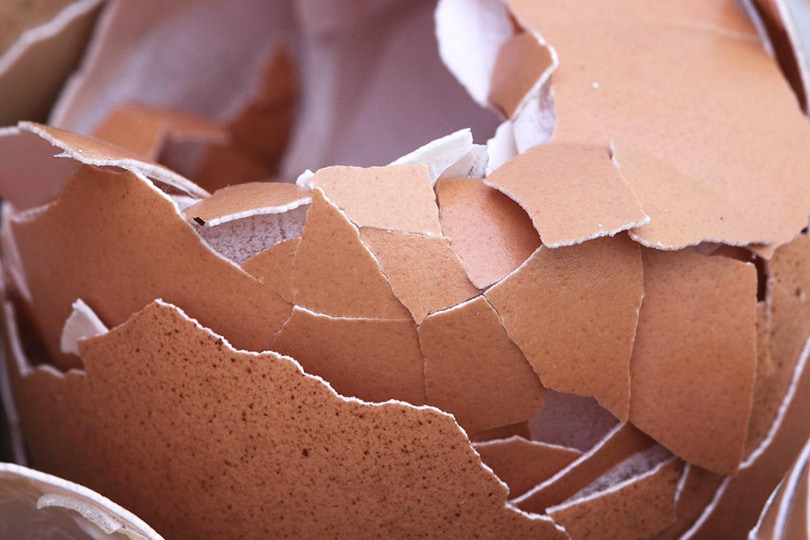
Did you know that over 320 million eggs are consumed in the US each year?1 There is a high demand for this precious commodity, which is a rich source of protein. But what happens to the eggshells after cracking the eggs? Can you compost the eggshells?
Yes, you can add eggshells into your compost. However, you might want to crush the shells before tossing them into the compost. The ground eggshells will inject precious nutrients like calcium, potassium, and magnesium into the compost.
This article helps you learn more about composting eggshells. Learn the right way to add these byproducts into the mix and also what issues you might face in the process.
Putting Eggshells in Compost
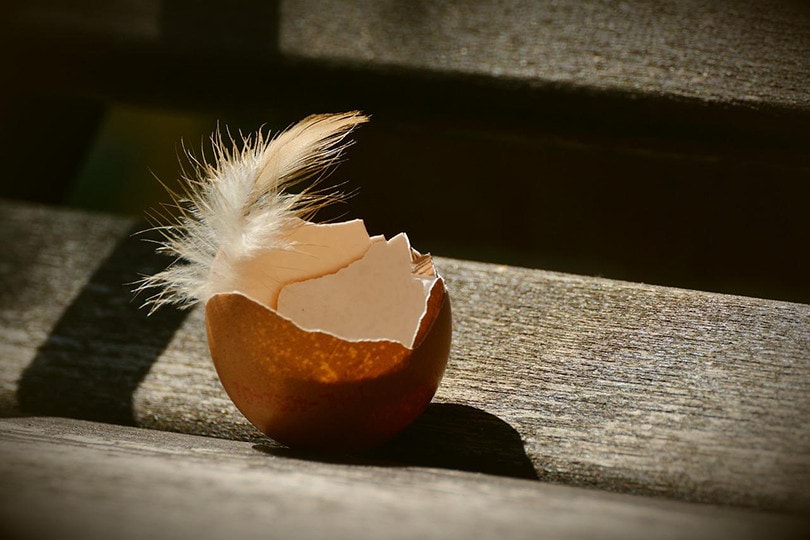
There are many benefits that come with adding eggshells to compost. Eggshells have loads of nutrients in them, such as calcium, that’s quite beneficial. So, you don’t have to toss them in the trash after using the content.
Plants in your garden can use this boost of calcium to build cell walls2. You can add whole eggshells into the compost; however, it’s better to crush them. Ground eggshells will take less time and effort to disintegrate.
In addition, always strive to add dry eggshells to the compost. You can place them outside in the sunshine or pop them in the oven. Once the eggshells are dry, they are easier to crush and turn into a fine powder to add to the compost.
Always add eggshells to the compost rather than directly on plants in your garden. Eggshells carry salmonella, which the high composting temperatures kills with time. So, composting kills off most pathogens leaving healthy compost that won’t harm the plants.
A study set out to test the effect of whole and ground eggshells on plants. This involved using eggshells ground by hand and those turned into fine powder using a coffee grinder. The researchers compared the two types of eggshells with lime and pure calcium.
The results revealed that eggshells ground by hand weren’t as beneficial to plants like finely ground ones. The finely ground eggshells were as effective as using pure calcium and did better than lime.
Essentially, you can use powder eggshells to boost your plant health and reduce soil acidity. This is done by replacing lime with the eggshells for better soil health. While it’s best to place the powder eggshells in the compost bin, you can also spread some on the soil itself.
Can You Compost Boiled Eggshells?
Boiled eggshells are also excellent sources of calcium, so you can add them to the compost. These eggshells contain calcium carbonate, which also transfers to the water used for boiling. Therefore, it’s also prudent to use the water too once you finish boiling your eggs.
However, it’s worth noting that not much of the calcium transfers to water. So, it’s still better to grind the eggshells and toss them to the compost. It doesn’t matter whether the eggshells are boiled or not boiled.
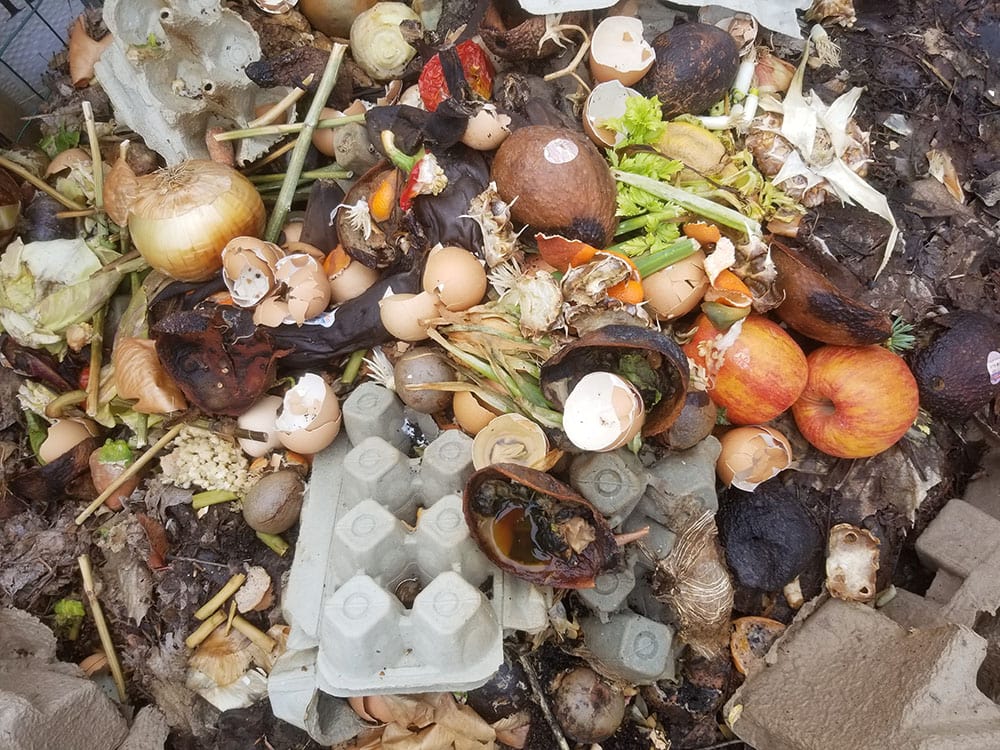
Can You Add Whole Eggs Into Compost?
Composting involves varying ingredients that are categorized as green and brown. Items like kitchen scrap, yard leaves and grass, and raw eggs are green. These are rich in nitrogen, which gets injected into the compost.
On the other hand, you have the browns that include dry sticks, sawdust, and similar items. These are carbon-based ingredients that you can add to compost. They can be moist, but not too wet as this can cause issues in the compost.
While it’s quite possible to include whole raw eggs in the compost, there is an argument against doing so. After some time, raw eggs go bad and the smell from them is awful as the raw egg disintegrates.
But if you still want to add some raw whole eggs to your compost, consider burying them deep in the heap. Since there are a lot of other items on top of the compost, the bad smell escaping from the compost is less. Also, consider adding only a few whole eggs at a time.
How Long Does It Take for Eggshells to Compost?
Whole eggshells are a good addition to compost. However, you might find it easier to toss in ground eggshells. In hindsight, ground eggshells will take up to 3 years to decompose while whole ones take much more time.
Ground eggshells take a shorter duration to decompose given the compost conditions. If the environment in the compost is acidic, the powder shells will take a shorter time to decompose.
One way that you can speed up the composting duration of eggshells is by washing them. As a whole, wash them, dry and grind using a coffee grinder to a fine powder. If possible, you can use boiled eggshells, which are easier to decompose.
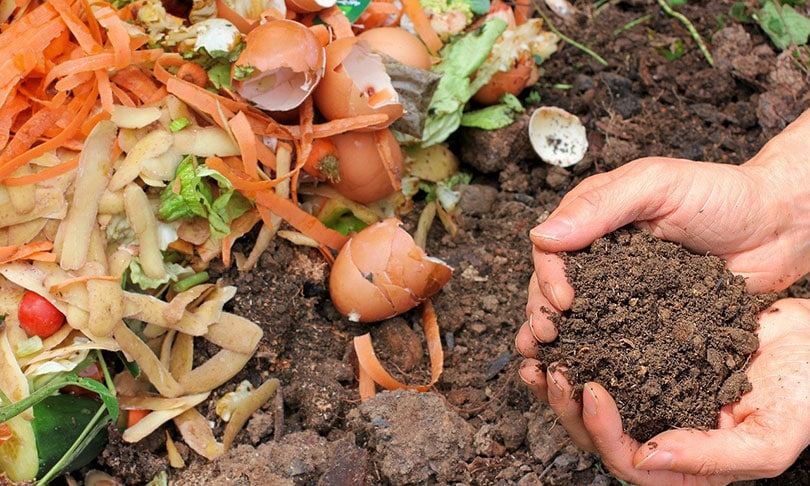
Do Eggshells Add Salmonella to the Compost?
Poultry eggs are notorious for having salmonella. This is why farmers have to wash the eggs before packaging them to sell. If you have a backyard operation going, ensure you wash all the eggs before adding them to your kitchen.
Unwashed eggshells can pose a health risk for your plants and compost as they add bacteria to the compost and soil. In fact, Salmonella will keep thriving in a compost pit and make its way to your plants.
While this isn’t too bad for plants that you have to cook, the worry is those you eat raw, such as berries and vegetables. It’s why you need to consider the compost hygiene and the eggshells you add to it.
One way to prevent salmonella from spreading to your compost is by baking the eggshells in an oven. The heat kills the bacteria and makes the shells easy to grind. Also, you can bury them deep in the compost, which ensures the heat gets rid of the bacteria.
For this to work, you can use a mixing rule that ensures the compost really heats up. Start by adding 2/3 high-carbon compost materials and one-third high-nitrogen greens. Top this off with 1 inch of wood chips to permit more oxygen penetration.
Always turn the compost as many times as possible to ensure proper aeration. It’s better to get a compost thermometer to check the temperature of the pile. Let the compost have about 50% moist conditions to facilitate better composting.
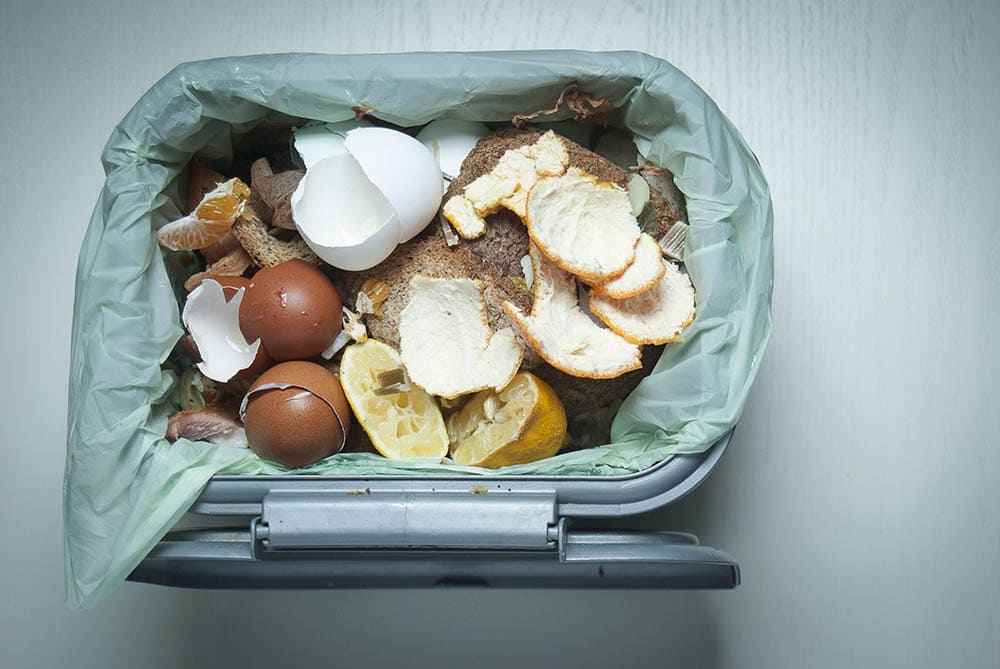
Do Eggshells Attract Rats to Compost?
Rats are a huge menace, and you won’t want to see them sniffing around your compost. When done right, good compost will not attract rodents. However, you have to be careful when adding items like eggshells to the mix.
Rats love compost heaps since they have fresh scraps and a warm environment. Eggshells add essential nutrients to the compost. However, you risk attracting rats. But it’s not only the eggshells attracting the rats but also the kitchen waste and even moist wood chips.
The best way to keep rats away from your compost is to proof the area. You can use a solid bin with a lid. All you have to do is turn it every week for better decomposition.
Apart from investing in a good composting bin, take stock of the area where you want to keep it. You might be harboring spaces or piles of leaves that provide shelter to rodents. Mow all long grass, pick up piles of leaves, and rodent-proof bird feeders in your garden.
In Conclusion
Eggshells are waste products that you get once you eat the contents inside. Instead of throwing them into the trash, they can be an excellent addition to your compost. These shells are rich in calcium and other essential nutrients your plants need.
Featured Image Credit: PublicDomainPictures, Pixabay
Contents


